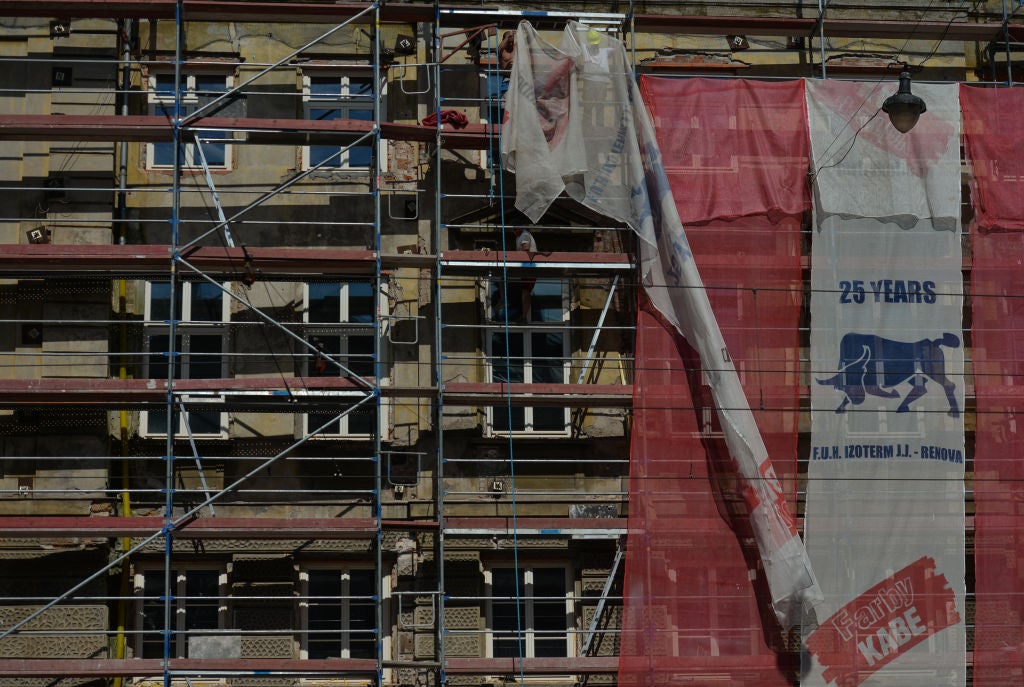Europe is not renovating its buildings fast enough. EU climate targets require 3% of buildings to undergo ‘deep’ renovations every year by 2030, achieving at least 60% energy savings per building. However, the rate is currently only 0.2%. A four-fold increase in current investment, to around €2.75trn ($3.1trn), must be mobilised for energy renovation this decade. The prize is commensurate: a fair and affordable transition to climate neutrality that reduces the EU’s structural vulnerability to volatile gas prices and enhances the economy, environment and well-being.

It is a huge challenge, but there are two pieces of good news. First, on finance: €2.75trn is a large number, but the EU’s construction sector turnover was €2.65trn in 2018 and its homes alone were worth €17trn. Banks – whose interest in ‘financing green’ is rising sharply, with added impetus following COP26 – hold €7trn in European mortgages. Second, on policy: numerous legislative proposals that can help drive renovation were tabled in the European Commission’s ‘Fit for 55’ package to meet climate targets in July 2021, and a proposed revision of the Energy Performance of Buildings Directive (EPBD) is expected on 14 December. A new EPBD has the potential to scale-up and create new markets for climate-neutral construction and renovation, benefitting people, businesses and the EU’s trade balance.
The Commission has a clear mandate to table a strong EPBD proposal, following member states’ endorsement of its Renovation Wave strategy. Part of this mandate is to introduce mandatory Minimum Energy Performance Standards (MEPS), applicable to new and existing buildings. Most experts agree that mandatory MEPS will be pivotal for driving up the rate and depth of renovation, as a long-term regulatory signal to building owners, banks and the supply chain. However, with significant ambition, and despite opportunity, comes significant political challenge. Member states may push back on MEPS due to legitimate concerns about financing and costs, a reluctance to accept EU oversight, enforceability issues, an underestimation of buildings’ significance for a fair and affordable energy transition, and worries over supply chains’ ability to deliver.
The European Parliament is likely to play a pivotal role in defending the most transformative provisions of the EPBD, having already shown a willingness to champion renovation to tackle the energy poverty and climate crises simultaneously. The Commission and member states should focus on the EPBD’s market creation potential.
Mandatory minimum standards and support
Potential investors in renovation – venture capitalists, retail banks, building societies and institutional investors – need a clear signal given the pace and volume of investment required. This is what MEPS can offer. The revised EPBD should set out the phase-in of MEPS so that, by 2030, they trigger renovations across all buildings – residential, commercial and public – and across all tenures. A timetable should be set for MEPS to be increasingly aligned with the EU’s 2050 net-zero emissions objective, starting with the worst-performing buildings and prioritising the protection of vulnerable and low-income households. A clear definition of ‘deep’ renovation in the EPBD needs to become the standard towards which the EU Taxonomy for sustainable investment evolves, to stimulate investment in the skills, technologies, business models and financial offers across the renovation supply chain.
To address member state concerns and ensure that mandatory MEPS deliver, the Commission, working with supportive national capitals, needs to bundle existing and new forms of direct and credible support for the creation and growth of renovation markets. This support can be adapted to individual member state needs, and designed to complement how 'Concerted Action', an exchange of knowledge and experience, helps the EPBD's implementation.
First, planned and potential renovation investments and technical assistance linked to National Recovery and Resilience Plans, InvestEU, the proposed EU carbon market-fed Social Climate Fund and other Emissions Trading System funds can be leveraged to attract private finance and investment in renovation. This can be complemented by the European Investment Bank’s (EIB) and Commission’s Private Finance for Energy Efficiency programme.
Second, Cohesion and Regional Development Funds can complement this by scaling-up supply chains in economically deprived regions, while the European Social Fund can focus resources on skills development for renovation in a way that offers pathways to quality jobs for young and long-term unemployed people. This could be rolled out via the Commission’s rebooted Build Up Skills initiative and plans for an Erasmus programme for apprentices.
Third, given the high ambition of many municipalities and cities for climate neutrality, changes to the EU’s state aid framework could allow for increased public support for energy efficiency projects. Localities that become involved in the Cities Mission, 100 Lighthouse renovation districts, and New Bauhaus initiatives can improve national conditions and support for implementation of MEPS. The EIB can work to enhance access to the European Local Energy Assistance (ELENA) facility for local governments in member states that have further to go in scaling-up renovation supply chains. ELENA’s technical assistance could also leave lasting, post-project legacies in the form of local and regional ‘one-stop shops’ for renovation that connect consumers, finance and the supply chain.
Fourth and finally, the EPBD presents an opportunity for the EU, member states and construction companies to realise innovation and trade gains. The EPBD will begin to address circularity and embodied emissions in buildings, a challenge central to enabling whole-economy decarbonisation. The need to tackle both energy efficiency and heating and cooling emissions will incentivise the emergence of new business models and highly skilled professionals at their intersection. Digitalisation and the development of the Smart Readiness Indicator for buildings can reinforce their role at the heart of energy system transformation. The Commission can focus its innovation programmes on accelerating these developments, harnessing specialisms, skills and fertile business environments.
Ambitious proposals for MEPS will help cement the EU’s position as a global leader in deep decarbonisation. By creating political buy-in for mandatory MEPS from member states through direct, credible and cohesive support, the EU can make this position a reality.



